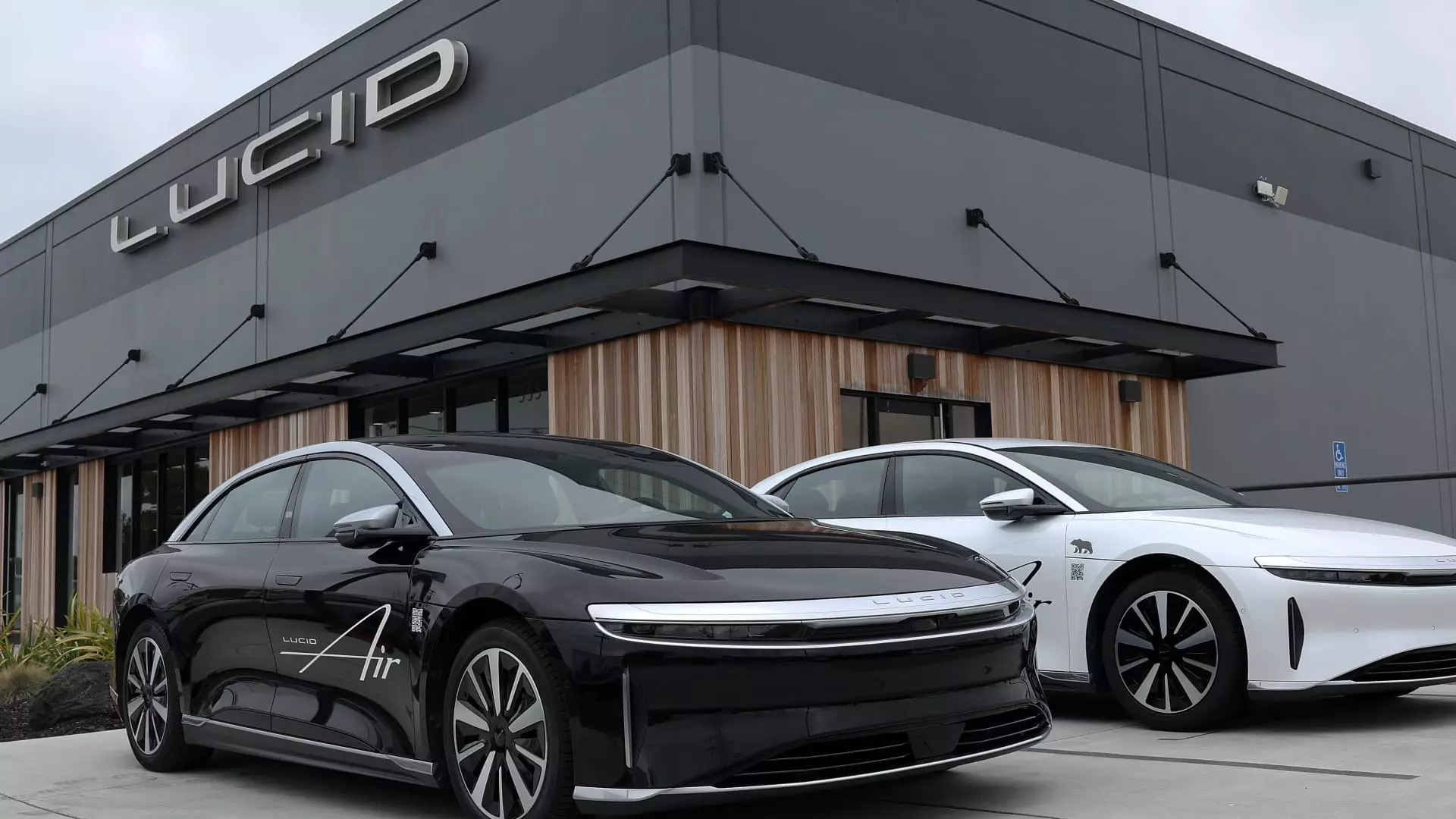Lucid Group has made notable strides in the third quarter of this year, slightly surpassing the expectations set by Wall Street. The electric vehicle manufacturer has reported a loss per share of 28 cents, slightly better than the predicted loss of 30 cents per share. Revenue for the quarter surged to $200 million, just above the anticipated $198 million. Following the announcement, Lucid’s stock rallied by over 8% in after-hours trading, reflecting a growing confidence among investors. Despite this, a closer examination reveals that the company faces significant challenges, including a net loss that has widened dramatically to $992.5 million from $630.9 million in the same period last year.
Lucid’s CEO, Peter Rawlinson, characterized this quarter as a “landmark” for the company, citing a record delivery of 2,781 units and the successful implementation of cost-cutting strategies. While these achievements are noteworthy, it is essential to scrutinize the broader financial landscape to understand the sustainability of this growth. The company’s substantial losses indicate that, despite increasing revenues, Lucid is still struggling to turn a profit. Furthermore, the significant spending on research and development ($324.4 million) and selling, general, and administrative costs ($233.6 million) has grown by 40.1% and 23.1% respectively from the previous year, showing that while revenue is increasing, expenses are also mounting.
Lucid has confirmed its ambition to produce around 9,000 vehicles by the end of the year, a modest increase from the 8,428 units produced in 2023. Such projections are built on a foundation of strategic financial management, bolstered by a total liquidity of $5.16 billion, which the company reports is sufficient to fund operations through 2026. However, this liquidity does not factor in a $1.75 billion stock offering that took many investors by surprise. The necessity of this capital injection points to ongoing concerns about cash burn and the viability of sustaining production goals amidst increasing operational costs.
Despite these optimistic projections, Lucid’s stock performance remains under significant pressure, with shares declining by nearly 45% throughout the year. This downward trend mirrors the widening losses and slower-than-expected sales, culminating in an 18% drop that marked the company’s worst daily performance since December 2021. The market’s reaction demonstrates a lack of confidence among investors, potentially fueled by fears surrounding Lucid’s ability to manage its rapid expansion and financial sustainability.
The electric vehicle market is notoriously competitive, with industry giants like Tesla and Rivian presenting formidable challenges. In response, Lucid is in the midst of a period characterized by heavy capital investment, as it expands its existing factory in Arizona and constructs a second plant in Saudi Arabia. This phase of growth is critical, as the company prepares for the introduction of its new SUV, the Gravity, expected to enter consumer production by year-end. Lucid’s persistent capital investments reflect its long-term vision, but this strategy also raises questions about the immediate financial implications and whether the market can bear the toll of its ambitious plans.
While Lucid Group has made commendable progress in meeting its revenue targets and improving deliveries, significant financial hurdles remain. The company’s mounting losses, coupled with the pressures of a competitive electric vehicle market, highlight the complexities of sustainable growth. As Lucid gears up for the consumer launch of the Gravity SUV and navigates the ongoing challenges associated with cost management and market competition, a delicate balance will be necessary to maintain investor confidence and ensure long-term viability. In an environment where innovation meets substantial financial risk, the next few quarters will be crucial in determining whether Lucid can truly emerge as a formidable player in the electric vehicle landscape.


Leave a Reply